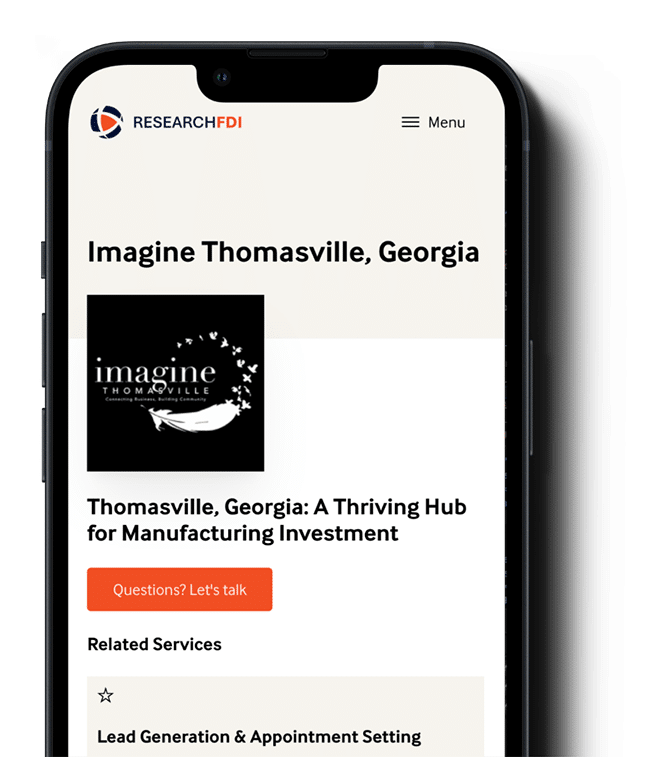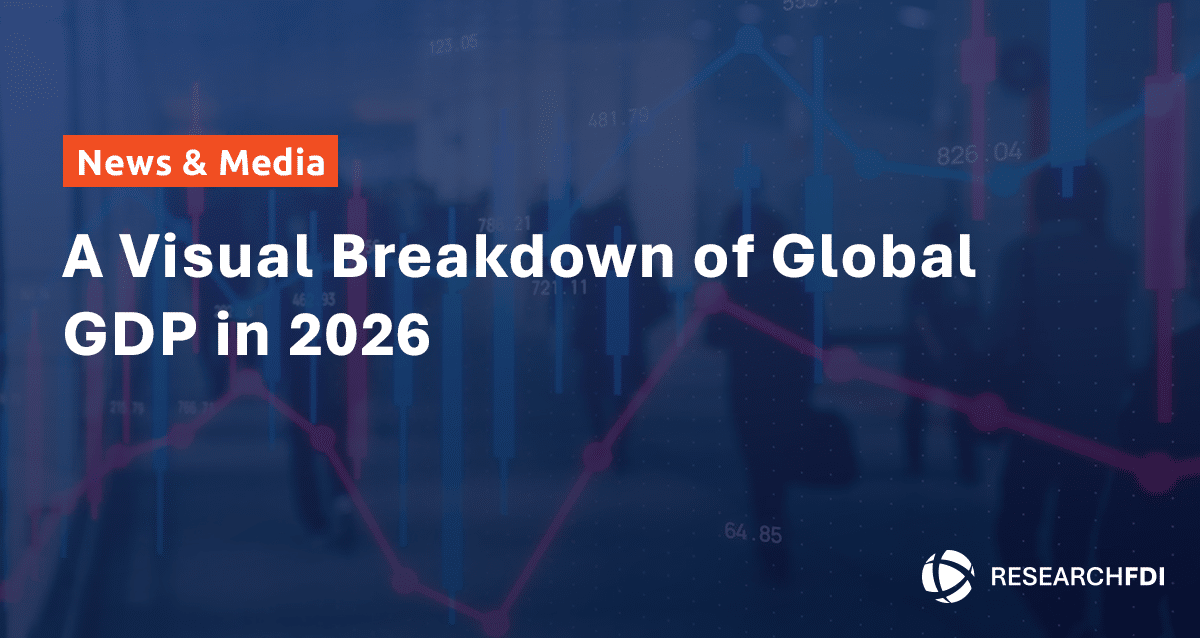Google has become so ingrained in our daily lives that “Googling” is now a verb. It’s how we find answers, discover new ideas, and navigate the digital world.
Every minute, 5.9 million searches are processed on Google—adding up to 354 million searches per hour, 8.5 billion searches per day, and a staggering 3 trillion searches annually.
But as artificial intelligence (AI) reshapes industries, it’s also transforming the future of Search Engine Optimization (SEO).
This raises a critical question: Will SEO exist in 5 or 10 years?
Beyond this, an even more striking question: what if Google didn’t exist anymore? Surely, all titans must fall.
Amidst the sheer volume of Google searches, it’s crucial to understand the role and evolution of Search Engine Optimization (SEO), the backbone of how websites are ranked, and thus thrive or fail, in the digital landscape.
Search Engine Optimization (SEO) is the practice of enhancing a website’s visibility on search engine results pages (SERPs) to attract more organic traffic. By optimizing content, using strategic keywords, and improving site performance, SEO helps businesses reach their target audience more effectively and improve their online presence.
SEO has rapidly evolved over the past few years, largely driven by advancements in AI. The future of SEO is being shaped by AI-driven innovations that are transforming how businesses approach their online presence. From enhancing keyword research to revolutionizing content creation and predictive analytics, AI is at the forefront of this evolution.
As businesses navigate the future of the SEO industry, one question frequently arises: Is AI killing SEO?
The answer lies in understanding how AI is integrated into SEO practices. AI-powered SEO tools are not only optimizing search engine algorithms but also providing valuable insights that drive investment attraction strategies. For instance, AI-driven SEO can identify emerging search trends, allowing businesses to stay ahead of the curve.
AI is making significant strides in content creation, enabling the production of high-quality, relevant content that resonates with target audiences. Predictive analytics, for example, allows businesses to forecast search engine trends and tailor their strategies accordingly. As we dissect the impact of AI on SEO, we will highlight its role in keyword research, content creation, and predictive analytics, demonstrating how these advancements can enhance investment attraction efforts and redefine the future of SEO.
Finally, we’ll explore how AI is already changing search engine optimization strategies and what these advancements mean for investment attraction efforts going forward.
The Role of AI in Shaping the Future of SEO
AI is revolutionizing SEO by enabling businesses to optimize content, predict search trends, and personalize user experiences. For example, AI-powered tools like Google’s Search Generative Experience (SGE) deliver instant, relevant answers, reducing the need for users to click through multiple links.
One of the most significant impacts of AI on SEO is the ability to personalize search results. AI algorithms can understand user intent better than ever before, delivering more relevant and personalized search results. This shift is crucial for businesses aiming to meet their customers’ specific needs and preferences.
AI-powered SEO tools are at the forefront of this transformation. These tools offer capabilities such as advanced keyword research, content optimization, and predictive analytics. By using AI for SEO optimization, businesses can identify the best-performing keywords, help predict future search trends, and optimize their content to rank higher on search engine results pages. This not only improves visibility but also ensures that content remains relevant and engaging for target audiences.
Incorporating AI-driven SEO strategies allows businesses to stay competitive in an ever-evolving digital landscape. The ability to quickly adapt to changes in search engine algorithms and user behaviour ensures that businesses can maintain their online presence and attract a steady stream of organic traffic.
The Evolution of SEO: From Keywords to AI-Driven Strategies
As the digital landscape continues to evolve, SEO strategies must adapt to stay effective. The integration of AI into SEO practices marks a significant shift, transforming the way that businesses approach search engine optimization.
The Transition from Traditional SEO to AI-Based SEO
SEO has evolved from simple keyword matching to sophisticated AI-driven strategies. Today, machine learning algorithms analyze user intent, enabling businesses to create highly targeted content that resonates with their audience.
Initially, SEO practices revolved around keyword matching and link building, but with the advent of new SEO technology and evolving SEO techniques, the focus has shifted dramatically. AI-driven strategies now dominate the SEO industry, utilizing advanced machine learning algorithms to enhance search engine optimization efforts. These AI-driven SEO strategies offer a more nuanced understanding of user intent, allowing businesses to tailor their content to meet the specific needs of their target audience.
Machine learning SEO has had a profound influence on SEO practices, enabling the analysis of vast amounts of data to identify patterns and trends that were previously impossible to detect. This has led to more sophisticated and effective SEO strategies that can adapt in real-time to changes in search engine algorithms and user behaviour. As a result, businesses can maintain their competitive edge and ensure their content remains relevant and visible.
Future of Keyword Research with AI
AI is revolutionizing keyword research and article optimization, making these processes more efficient and accurate. Traditional keyword research involved manually identifying relevant keywords and phrases, but AI-powered tools can now analyze large datasets to uncover hidden opportunities and predict future trends within minutes. This allows businesses to optimize their content for the most relevant and high-performing keywords, improving their search engine rankings and driving more organic traffic.
Predictions for the future of keyword research suggest that AI will continue to play a pivotal role in this area. As AI technology advances, we can expect even more sophisticated tools that provide deeper insights into user intent and search behaviour. This will enable businesses to create highly targeted content that resonates with their audience and meets their needs more effectively.
Google Search Generative Experience (SGE)
Google is at the forefront of adapting to AI-driven changes in the SEO landscape, obviously. The Google Search Generative Experience (SGE) represents a significant shift towards a more user-friendly and interactive search engine. SGE combines traditional search results with AI-generated answers, providing users with immediate, relevant information without the need to click through multiple links.
This evolution in search technology reflects the future of keyword research and SEO trends in 2025, as businesses must adapt their strategies to align with these changes. Google’s focus on enhancing the user experience through AI-driven features highlights the importance of staying current with SEO trends and incorporating AI tools to remain competitive.
The future of SEO is undoubtedly intertwined with the advancements in AI technology. By embracing these changes and leveraging AI-powered SEO tools, businesses can optimize their content, improve their search engine rankings, and attract more organic traffic. This approach will be essential for maintaining a strong online presence and achieving long-term success in the digital landscape.
Will SEO Exist in 5 or 10 Years?
The longevity of SEO in the AI era is a hot topic among digital marketers and business leaders. Many wonder, will SEO exist in 5 years or 10 years? Examining the future of search engines suggests that SEO will continue to be a critical component, albeit with significant adaptations. As AI-driven technologies such as feature snippets and rich results become more prominent, the nature of SEO will evolve to stay relevant.
The Longevity of SEO in the AI Era
Predictions on the future of SEO and search engines suggest that while traditional methods might lose some ground, the essence of SEO will persist. The key lies in adapting to technological advancements and leveraging AI for SEO optimization. The future of search engines will likely involve a blend of traditional SEO practices and new AI-driven strategies.
SEO vs. AI: A New Dynamic
Comparing traditional SEO methods with AI-driven approaches highlights a new dynamic in digital marketing. While AI SEO services and tools offer impressive capabilities, humanizing content through personal experiences, anecdotes, and opinion stances remains crucial. Creating synergy between SEO and AI will define modern digital strategies, combining the precision of AI with the creativity and empathy of human input.
SEO Trends and Innovations in 2025
The landscape of SEO is rapidly evolving, driven by groundbreaking AI and machine learning technologies.
Key SEO trends are emerging that highlight how artificial intelligence is reshaping search engine optimization strategies with more sophisticated and nuanced approaches to SEO. These innovations are not merely altering SEO practices but are also significantly impacting digital marketing strategies and investment attraction efforts.
AI is revolutionizing the SEO field by providing tools that offer deeper insights and more precise targeting. Emerging trends include the integration of AI into content creation, where machine learning models help generate and optimize content that aligns with user intent and search algorithms. Additionally, advancements in AI are refining keyword research, allowing for more accurate and dynamic keyword targeting. These developments are reshaping how businesses approach their SEO strategies, making them more adaptable and responsive to evolving search behaviours.
For investment attraction, these trends are particularly impactful. Businesses leveraging AI-driven SEO strategies can better position themselves in the digital marketplace, attracting more relevant traffic and generating higher-quality leads. By staying abreast of these SEO trends and incorporating innovative technologies into their strategies, companies can enhance their visibility, drive better engagement, and ultimately attract more investment.
AI-Powered SEO Tools and Services
One of the key benefits of the best SEO AI tools is their ability to adapt to changing search engine algorithms and user behaviours. These tools continuously learn from new data, ensuring that SEO strategies remain effective and relevant. Features like predictive analytics and automated content generation help streamline processes, saving time and improving accuracy in campaign execution.
For instance, AI-powered tools can automate keyword research, suggest optimization strategies, and track performance with unparalleled precision.
For investment attraction, AI SEO services offer a strategic advantage. By using these tools, businesses can optimize their online presence to better align with investment goals, attract targeted traffic, and generate high-quality leads. AI-powered tools also enable more effective tracking and analysis of SEO performance, allowing for data-driven adjustments and improvements.
The integration of AI into SEO has led to the development of a range of powerful tools and services designed to enhance search engine optimization strategies. These AI-powered tools provide actionable insights, streamline processes, and optimize performance in ways that traditional methods alone cannot.
Here are some of the most effective AI-powered SEO tools and services currently available:
1. Ahrefs
Ahrefs is renowned for its comprehensive suite of SEO tools, and its AI capabilities have significantly enhanced its offerings. The platform’s AI-driven keyword research tool provides deep insights into search volume, keyword difficulty, and competitive analysis. Ahrefs’ content explorer and site audit features also leverage machine learning to identify content gaps and technical SEO issues, helping businesses improve their online presence.
2. SEMrush
SEMrush offers a robust set of tools for SEO and digital marketing, enhanced by AI technology. Its AI-powered keyword research tool provides detailed keyword metrics, competitive analysis, and trend forecasts. SEMrush’s SEO content template and on-page SEO checker utilize AI to suggest optimizations based on top-performing content and search engine algorithms, ensuring that your content ranks higher.
3. Surfer SEO
Surfer SEO uses AI to analyze SERP data and provide detailed recommendations for on-page optimization. Its AI-driven audit and content editor tools help businesses improve their content’s relevance and SEO performance. Surfer SEO’s data-driven approach ensures that content meets current SEO standards and user expectations.
4. Frase
Frase is an AI-powered tool that focuses on content creation and optimization. It helps businesses generate content briefs, optimize existing content, and improve search visibility by analyzing top-ranking pages and identifying content opportunities. Frase’s AI-driven recommendations ensure that content is both engaging and SEO-friendly.
5. ChatGPT
ChatGPT, developed by OpenAI, is revolutionizing SEO by streamlining content creation, enhancing keyword integration, and generating high-quality, multilingual content at scale. This AI-powered tool helps businesses produce SEO-friendly blog posts, product descriptions, and social media captions in minutes, saving time and resources. By analyzing search trends and user intent, ChatGPT ensures content is optimized for search engines while maintaining a natural, engaging tone. For businesses targeting global markets or aiming to attract investors, ChatGPT’s ability to generate multilingual content and craft compelling narratives makes it an invaluable addition to any SEO toolkit.
By incorporating these AI-powered SEO tools into their strategies, businesses can enhance their search engine optimization efforts, improve their online visibility, and attract targeted investment. These tools offer advanced capabilities that make SEO processes more efficient, data-driven, and effective, ultimately helping businesses achieve their digital marketing and investment goals.
The Future of SEO and Investment Attraction: How ResearchFDI Can Help
The integration of AI in SEO is particularly advantageous for investment attraction strategies.
At ResearchFDI, we recognize the potential of AI-powered SEO to refine our approach to attracting foreign direct investment (FDI).
By leveraging AI for keyword research and search engine optimization trends, we can more accurately target potential investors and craft compelling messages that resonate with their needs. AI’s ability to analyze vast amounts of data ensures that our strategies are not only data-driven but also predictive, allowing us to anticipate and respond to market shifts swiftly. This future-forward approach not only enhances our effectiveness but also positions us as leaders in the evolving landscape of investment attraction.
AI-driven SEO is not just about improving search rankings—it’s also a powerful tool for investment attraction. By leveraging AI to identify emerging trends and optimize content, businesses can better position themselves to attract FDI. For example, a regional development agency used AI-powered SEO to attract technology investors, resulting in a significant increase in inquiries and successful investments.
Effective SEO strategies are crucial for making a region or investment opportunity stand out, ensuring it ranks highly in search engine results and reaches potential investors.
The integration of AI into SEO practices has further revolutionized how businesses and economic development agencies approach investment attraction. By utilizing advanced SEO techniques, ResearchFDI is at the forefront of this transformation, helping regions enhance their visibility and appeal to foreign investors.
Final Thoughts & Next Steps With ResearchFDI
From reshaping search algorithms to enhancing keyword research and content creation, AI is revolutionizing the way we approach search engine optimization.
The integration of AI into SEO practices is not just a trend but a significant shift that is redefining how businesses attract and engage with their target audiences. As AI continues to evolve, it brings new opportunities and challenges, making it crucial for businesses to stay ahead of the curve.
As AI continues to reshape the future of SEO, staying ahead of the curve is essential for businesses and regions aiming to attract investment. At ResearchFDI, we focus on exploring innovative strategies and tools that can help optimize digital presence and drive meaningful results.
Connect with us today to learn more about how AI-driven SEO can support your investment goals.



